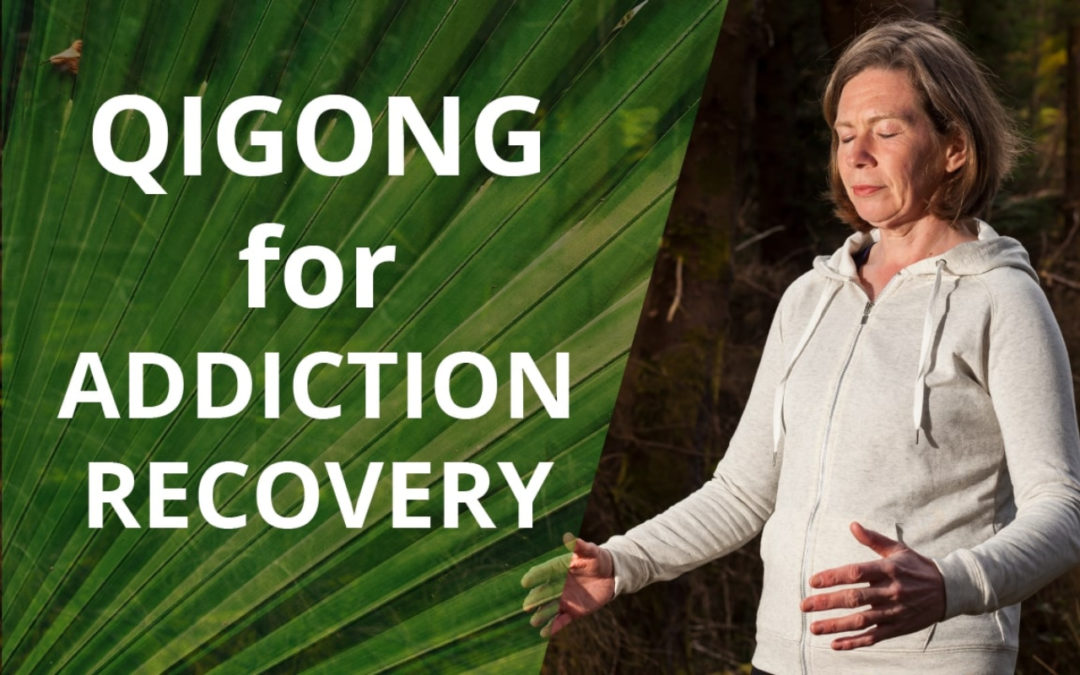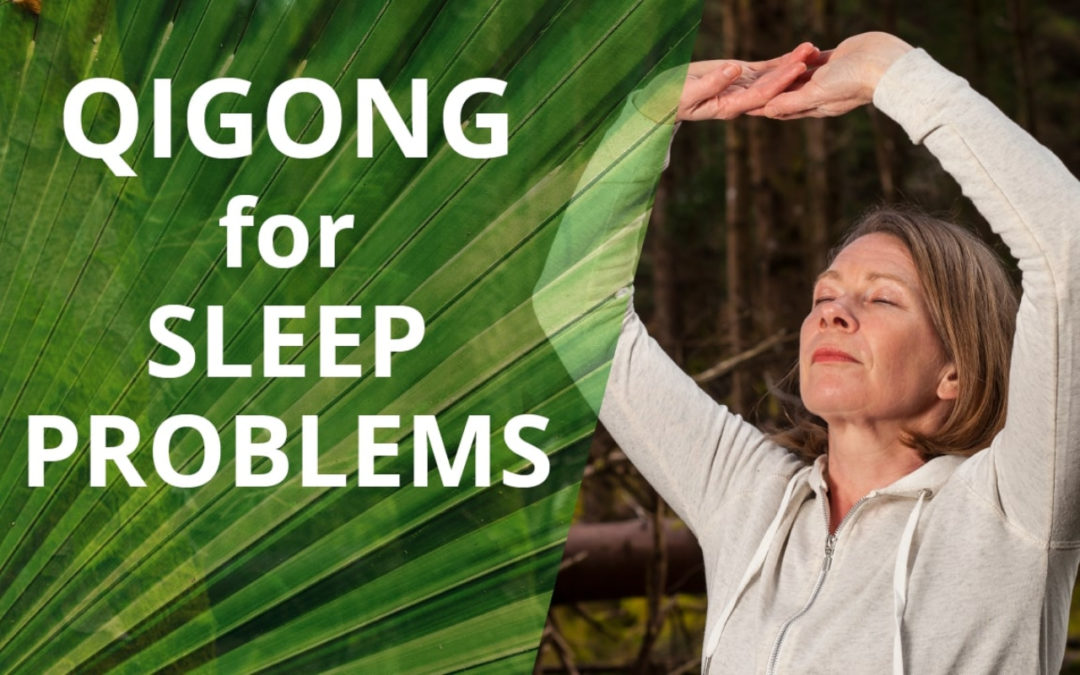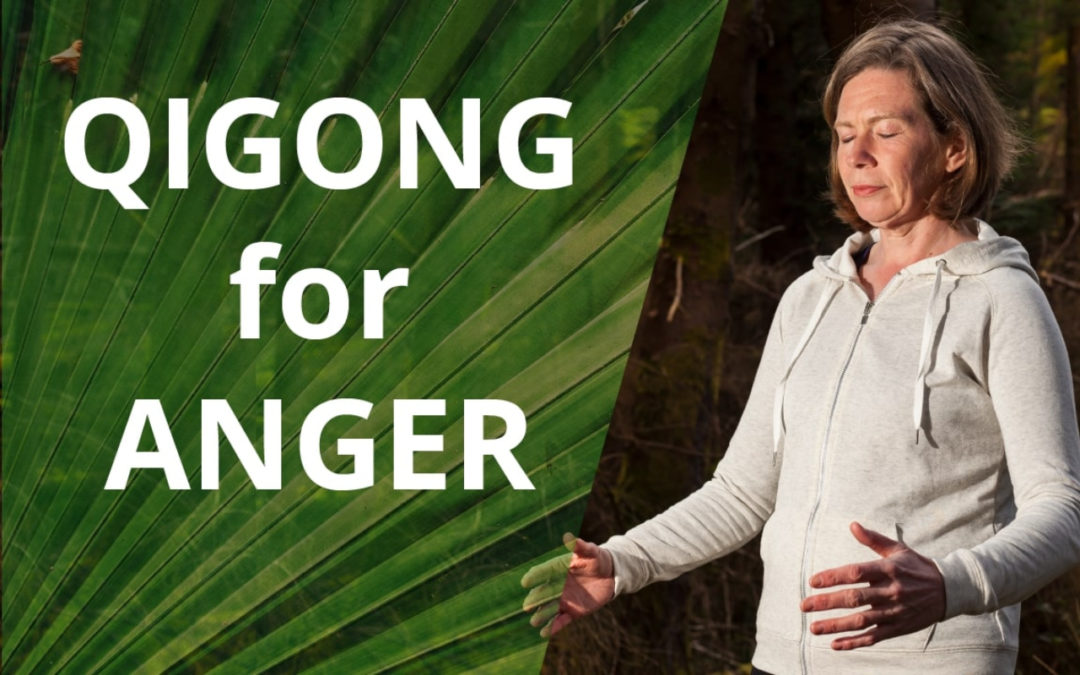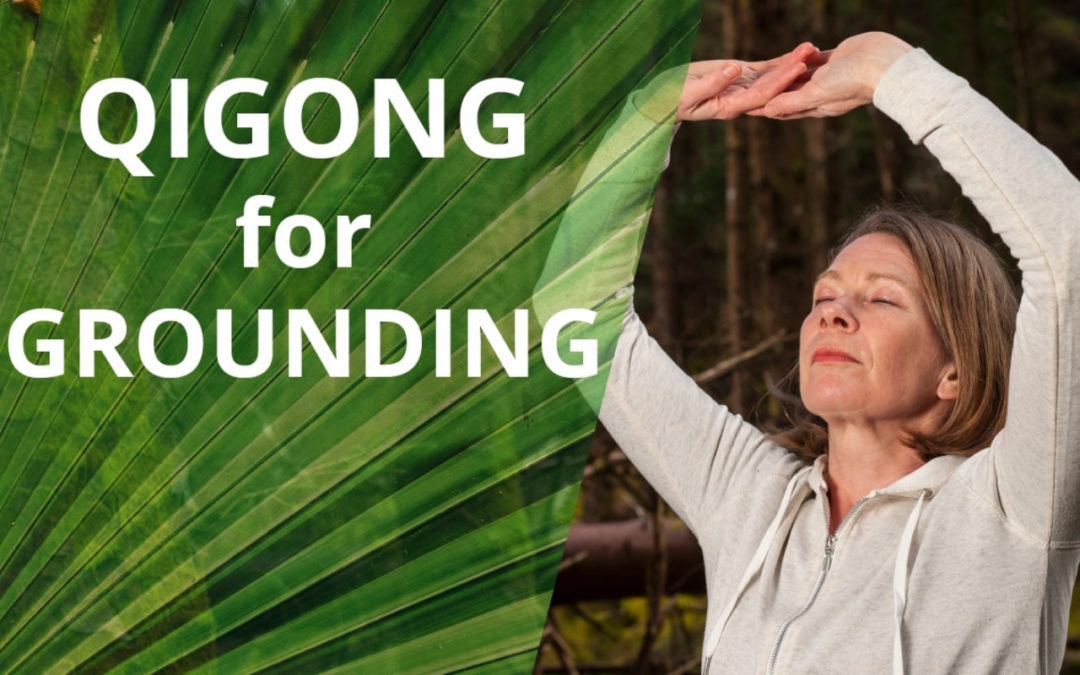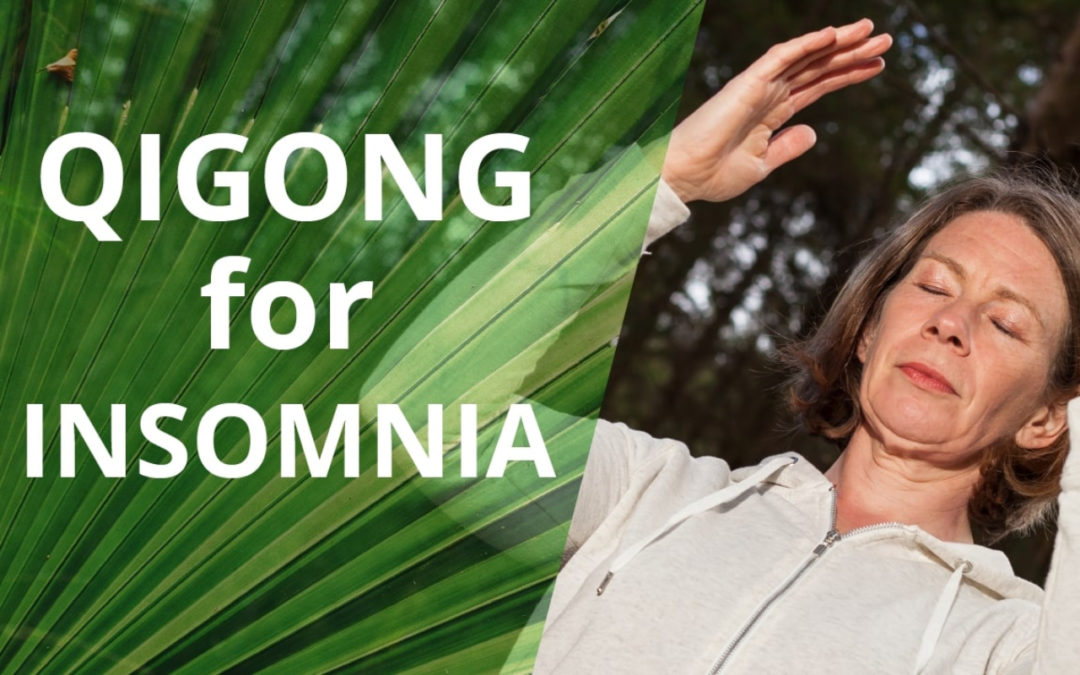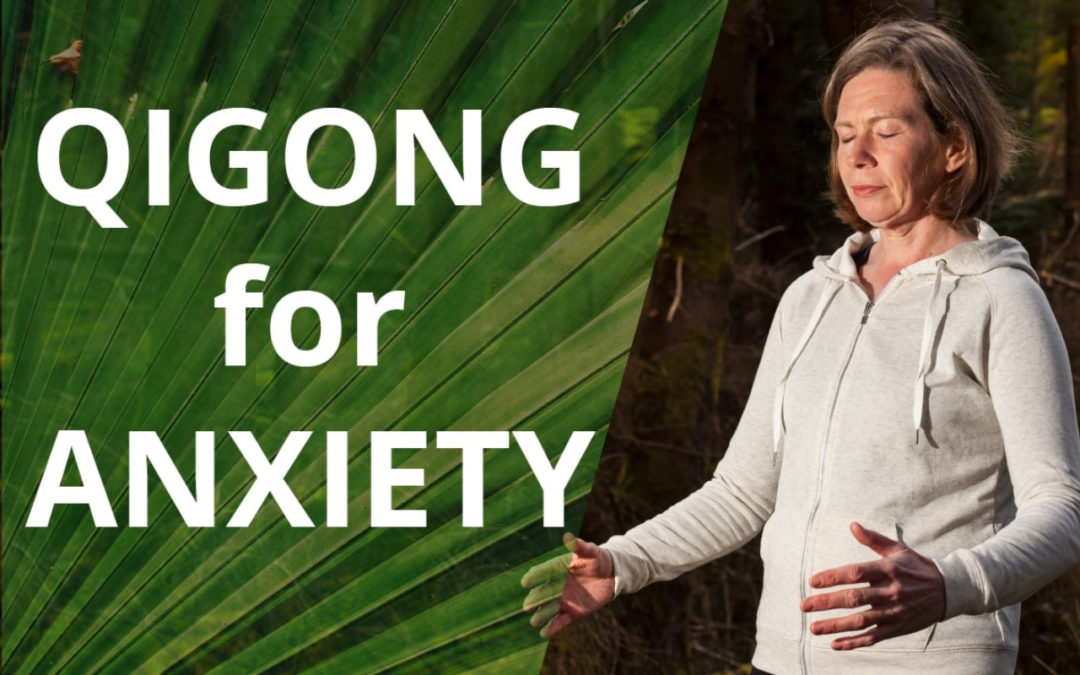
by janicetucker | 15 May 2018 | Qigong, Qigong & Emotional Issues, Qigong To Help Manage Specific Health Conditions
For those of you recovering from addiction there is one method that you may not yet have come across. When integrated into your existing recovery programme it can help you maintain sobriety and improve the quality of your health and your life. This method is called Qigong. In the post below you will learn some interesting facts and tips which will show you how to use Qigong for addiction recovery.
Janice Tucker is a practitioner of Traditional Chinese Medicine and Medical Qigong with acupuncture clinics in Tralee, Cahersiveen and Killorglin, Co. Kerry, Ireland. She is also the founder of the Space To Relax online programme of Qigong video lessons. Janice has been in practice since 2000 and teaching Qigong in workshops and to her clients since 2002.
Please don’t forget to head over to subscribe to her YouTube channel by clicking the red “Subscribe” button. That way you won’t miss her regular videos which are full of useful health enhancing tips. These videos will help you to enhance your health and prevent illness from arising in the first place.
What is Qigong?
Qigong (or sometimes referred to as Chi Kung or Chi Gung) is a branch of Traditional Chinese Medicine (TCM) that is thousands of years old. It involves simple exercises which combine gentle movement, breathing and the use of your mind.The result is restoration of both physical and mental health by promoting the smooth and balanced flow of Qi (energy) throughout your whole system.
Benefits of Qigong
In addition to the well known physical benefits from Qigong such as improving your energy levels, helping ease joint pain from arthritis and muscle pain from fibromyalgia, Qigong can significantly improve your mental health. Many people have experienced a reduction in anxiety, depression and stress levels in addition to significantly improved sleep, conditions which can arise during addiction recovery.
All of these benefits make Qigong for addiction recovery an ideal complementary therapeutic approach.
You can watch two videos on my website with more information on the benefits of Qigong:
Benefits of Qigong Part 1 – How Qigong Benefits You.
Benefits of Qigong Part 2 – How Qigong Benefits Your Relationships.
Research Into Qigong For Addiction Recovery
A number of research studies have reported that Qigong can help reduce withdrawal symptoms and cravings, reduce depression and also help contribute to the prevention of relapse.
Study 1
In one study conducted in China on 86 male heroin addicts undergoing detoxification, the treatment group practicing Qigong experienced less anxiety and more rapid reduction of withdrawal symptoms than the group receiving detoxification drugs alone.
(Li M, Chen K, Mo Z. “Use of qigong therapy in the detoxification of heroin addicts.” Alternative Therapies in Health and Medicine. 8(1): 50-59, 2002.)
Study 2
In this Harvard study, 101 cocaine dependent people were given 4-6 sessions of either Qigong or a sham treatment over two weeks. Those who had practiced Qigong showed a greater reduction in cravings and symptoms of depression. The practice of qigong, through its use of movement, breath work, visualisations and meditation, may be a beneficial addition to both a detoxification regimen and to an overall treatment and relapse prevention strategy.
(Smelson, D, Chen KW, Ziedonis D, et al. “A Pilot Study of Qigong for Reducing Cocaine Craving Early in Recovery”. The Journal of Alternative and Complementary Medicine. February 2013, 19(2): 97-101.)
What Do I Do Next?
If you would like to start using Qigong for addiction recovery there are a number of things you can do:
1. Head over to my Space To Relax homepage.
There you can sign up for a free 3 part video series of Qigong lessons. These three lessons will give you the perfect introduction to Qigong. They only take 5 minutes to perform and are very easy to learn. Also, scroll to the bottom of my homepage where you can sign up to receive a free audio meditation called “Calm Your Busy Mind in 8 Minutes“. I talk you through this simple breathing method in order to help you feel calm, relaxed, clear and focused in your mind.
2. Go to YouTube and subscribe to my channel by clicking the red “Subscribe” button. That way you won’t miss my regular videos which are full of useful health enhancing tips.
3. Join my free Facebook group, “Space To Relax Free Qigong Group” and leave any comments or questions for me there. I’ll be happy to answer them. Here I post articles and videos with really useful tips about how to use Qigong to improve your state of health.
4. Janice’s Video Blog
If you would like more information and access to many free video demonstrations of Qigong then head over to my video blog. Some videos of particular interest to you are listed below. Please feel free to browse through some of the others on the blog page.
Qigong for Anxiety
Discharge Waste Qi Method
Morning Qigong Exercise – 3 Feel Good Tips
Get Rid of the Negative With Qigong Breathing Exercises
Qigong For Sleep
home

by janicetucker | 19 Apr 2018 | Qigong, Qigong & Emotional Issues, Qigong Meditations & Breathing, Qigong Routines, Qigong To Help Manage Specific Health Conditions
Do you ever wake up feeling as though you’ve been run over by a bus? I do, but thankfully not very often. We all know the feeling of having suffered a terrible night’s sleep. We feel exhausted both physically and mentally. We may also feel anxious that we won’t be able to function to the best of our ability at work. We may also be fearful of this happening night after night, and wonder how we are going to manage our lives if the exhaustion gets worse. In the video today you’ll learn how to use Qigong for sleep problems.
Janice Tucker is a practitioner of Traditional Chinese Medicine and Medical Qigong. She is also the founder of the Space To Relax online programme of Qigong video lessons.
Please don’t forget to subscribe to my YouTube channel by clicking the red “Subscribe” button on the page. That way you won’t miss my regular videos which are full of useful health enhancing tips. These videos will help you to enhance your health and prevent illness from arising in the first place. Also please give this video a “Like” if you found it informative.
Types of Sleep Problems
There are a number of different sleep problems which can all affect the quality and quantity of the sleep we get. The result is that they can also have a negative effect on our energy levels and our mental health. The following sleep problems are listed on the Mental Health Ireland Factsheet on Sleep where you can find more information.
- Insomnia. This affects an estimated 20% of people and is the most common sleep disorder. This is the one we will be focusing on in this video.
- Narcolepsy. This is excessive sleepiness.
- Sleep Apnoea. The person may stop breathing at intervals in the night which then wakes them so their sleep is constantly being interrupted.
- Sleep Disorders in Children. This can be distressing and exhausting for both children and parents. Sleep problems can impact on the physical and emotional health of a child so are important to address as early as possible.
The Solution – Qigong For Sleep Problems
In order to be able to sleep soundly we need to have a calm mind. Often we find that our minds are too busy when we go to bed. This over-excitement in the brain can prevent us from getting off to sleep quickly and easily.
There are many practical steps you can take to ensure that your mind is calm before bed, e.g. taking regular exercise, establishing a regular time for going to bed, turning off screens at least an hour before bed, taking a bath, avoiding coffee and alcohol a few hours before going to bed.
Qigong is also the perfect practice to help you improve the quality of your sleep because every Qigong method helps to calm your mind, the essential ingredient for good sleep.
Below are a few specific tips using Qigong for sleep problems.
- Practice Abdominal Breathing as you are lying in bed at night. Refer to my previous video called “How to Do Qigong Abdominal Breathing or Diaphragmatic Breathing“.
- Watch my previous video called “How to Calm Down with Qigong” so that your mind is in a calm state before going to bed.
- Relaxation is very important as it gets you into the state where you can easily go to sleep. Watch the video “Qigong Relaxation Techniques” for some effective Qigong tips on how to do this.
- Watch another video from me called “Qigong for Sleep Difficulties” which will give you more information and useful methods of Qigong for sleep problems.
What Do I Do Next?
If you would like to start using Qigong for sleep problems then:
- Head over to my Space To Relax homepage. There you can sign up for a free 3 part video series of Qigong lessons. These three lessons will you to help to improve the quality and quantity of your sleep. Once you’ve completed the free series you’ll have the opportunity to join my Space To Relax online membership programme of Qigong video lessons. This will allow you to take your practice to a whole new level where you will learn many exercises to eliminate health issues before they become a major problem. I’ll guide you step by step through many more effective Qigong methods which work to calm and clear your mind; essential factors in enabling you to sleep soundly.
- Subscribe to my YouTube channel by clicking the red “Subscribe” button. That way you won’t miss my regular videos which are full of useful health enhancing tips. Also please give this video a “Like” and share with me in the comments box any tips you might have to improve the quality of your sleep.
- Join my free Facebook group, “Space To Relax Free Qigong Group” and leave any comments or questions for me there. I’ll be happy to answer them. Also, by joining this group, you will receive regular posts of Qigong articles and videos with really useful tips about how to use Qigong to improve your state of health.
home

by janicetucker | 28 Feb 2018 | Qigong, Qigong & Emotional Issues, Qigong Routines
“Do you ever get angry?”
“No.”
“What, never?”
“No.”
“I don’t believe you!”
Over the past 18 years or so this has been a fairly common exchange between myself and my clients in the acupuncture clinic. The reason I don’t believe people who say they never get angry is that everyone does. The difference is that some people express it by shouting and screaming and some people bottle it up in the form of frustration, silent resentment or sulking. In the video today I’m going to share with you how to use Qigong for anger management, more specifically, for getting rid of anger in a healthy way.
Janice Tucker is a practitioner of Traditional Chinese Medicine and Medical Qigong, and the founder of the Space To Relax online programme of Qigong video lessons.
Please don’t forget to subscribe to my YouTube channel by clicking the red “Subscribe” button on if you are watching over there. That way you won’t miss my regular videos which are full of useful health enhancing tips. These videos will help you to improve your health and prevent illness from arising in the first place. Also please give this video a “Like” if you found it informative.
How Does Anger Affect Us?
Anger is the emotion associated with the “Liver” organ system in Qigong. The Liver system is responsible for the smooth flow of Qi on all levels (physical, mental, spiritual, emotional). If anger is excessive it impacts on the healthy functioning of the Liver system which can result in many health problems such as:
• feeling a lump in the throat;
• abdominal distension;
• eye problems;
• tendon stiffness and inflexibility;
• digestive issues;
• pre-menstrual tension in women;
• lumps in the breasts or breast tenderness in women;
• tinnitus;
• headaches;
• brittle nails;
• muscle cramps and spasms;
• lack of direction and organisation in life.
As you can see it’s not a good thing to be experience and out of balance Liver system!
The Solution – Qigong For Anger
Qigong for anger management is perfect as the methods in general encourage your mind to be calm and relaxed, the very opposite of anger! However there are a couple of methods which are particularly useful to help you regulate anger more specifically.
1. Ba Duan Jin Exercise
This is one exercise from an 8 part series of Qigong exercises called the Ba Duan Jin or 8 Pieces of Brocade. It’s a very famous series of Qigong exercises and this particular one is a perfect method of Qigong for anger because it helps the Liver system. It thereby helps to combat the damaging effects of anger your body and mind.
This movement is called “Open Eyes Wide With Clenched Fists”. The position for this Qigong exercise is a horse stance. Step out into a horse stance that is comfortable for you, as wide or as narrow as you want. Check that the knees are not dropping inwards and are pushed out over the toes. Tuck the pelvis in under your body to make the lower back flat. Both hands rest on the hips, with loose fists and the palms facing upwards. The chest is pulled back slightly and you are nice and tall, with length in the back of the neck.
Women begin with the right hand and men with the left hand. Move the first hand out in front of you with a gentle punching action and as you extend it, at the end, twist the arm so the back of the hand ends up facing uppermost. Bring the fist back, turning the palm upwards as you draw it back in. Repeat with the other arm, extending the arm outwards and looking at the fist. Pull the arm back, twisting it back into the starting position on the hip.
The movement for this punching action actually comes from your hips. You need to twist in the whole body as you make the punching action, looking at the fist. The movement of the hip then draws the punch back. The hip turns and pushes the arm out. Look the fist. The hip then turns, drawing the arm back in towards the body.
Breathing
Breathe in before you begin. Exhale as you punch. Breathe in as you draw the arm back to the hip.
In this method you pick one thing that you want to release from your body or mind. In this case pick the emotion of anger and breathe it out using the technique shown in the video.
3. Practice any moving Qigong exercise.
Moving Qigong methods promote the smooth flow of Qi and thereby help to disperse the emotion of anger.
What Do I Do Next?
If you would like to start using Qigong for anger then:
1. Head over to my Space To Relax homepage. There you can sign up for a free 3 part video series of Qigong lessons. Lesson 1 will teach you how to breathe more efficiently and calm your mind with Abdominal Breathing. Lesson 2 is the perfect moving Qigong exercise to perform and promote the smooth flow of Qi. In Lesson 3 you will learn how to rid waste Qi (in this case in the form of anger) from your body.
2. Subscribe to my YouTube channel by clicking the red “Subscribe” button. That way you won’t miss my regular videos which are full of useful health enhancing tips. Also please give this video a “Like” and share with me in the comments box what you do to help dispel anger in a healthy way.
3. Join my free Facebook group, “Space To Relax Free Group” and leave any comments or questions for me there. I’ll be happy to answer them. Also, by joining this group, you will receive regular posts of Qigong articles and videos with really useful tips about how to use Qigong to improve your state of health.
home

by janicetucker | 22 Feb 2018 | Qigong, Qigong & Emotional Issues, Qigong Routines
Wouldn’t it be fantastic if we could all live our lives in a state of feeling grounded, centred and like nothing could throw us off course? Many of us feel exactly the opposite of that most of the time. We suffer from constant mental chatter, anxiety and stress! In the video on this page I’m going to show you how you can use Qigong for grounding. When you can do this you can sail more smoothly through life and it’s daily challenges without been thrown off course. You’ll remain calm, relaxed and focused, even when people around you seem to be losing the plot!
Janice Tucker is a practitioner of Traditional Chinese Medicine and Medical Qigong. She is also the founder of the Space To Relax online programme of Qigong video lessons.
Please don’t forget to subscribe to my YouTube channel by clicking the red “Subscribe” button across on Youtube. That way you won’t miss my regular videos which are full of useful health enhancing tips. These videos will help you to enhance your health and prevent illness from arising in the first place. Also please give this video a “Like” if you found it informative.
What Does It Mean To Be “Grounded”?
Mindbodygreen.com published an article on grounding and wrote:
“Being grounded is an essential skill for empaths and highly sensitive people who pick up emotions from the people and environment around them. It means that you’re present in your body and connected with the earth, allowing you to feel centred and balanced no matter what’s going on around you.
If you aren’t grounded, you’re like a leaf in the wind: very vulnerable and thrown off balance very quickly. But when you are well grounded, you are like a big, strong tree. If something happens around you, it doesn’t influence you so much and you are able to feel much more peaceful and balanced in your daily life.”
For the whole article click here.
The Solution – Qigong For Grounding
Qigong methods in general are perfect grounding exercises for us as they encourage you to be present in your body and connected with the earth and nature. However there are a couple of methods which are particularly useful to get you started on your journey to feeling more grounded.
1. Breathing. Make sure that you are breathing efficiently. Qigong has the perfect solution to this as it requires us to pay conscious attention to our breath. Breathing usually takes the form of what is called “Abdominal Breathing” (as you breathe in your belly expands and as you breathe out your belly shrinks) which is extremely relaxing. This simple method alone will help you to feel more grounded, especially if you practice outside in a pleasant environment like woodland, a park or the beach.
2. Watch my previous video, “Getting Rid of the Negative With Qigong Breathing Exercises“.This is an excellent method to bring you into the present using your mind and your breath.
3. Practice a moving Qigong exercise where you have to pay attention to your movements. This will again bring you into the present and help to develop a feeling of being grounded. The more you practice the more that you will experience this feeling even when you’re not practising!
What Do I Do Next?
If you would like to start using Qigong for grounding then:
1. Head over to my Space To Relax homepage. There you can sign up for a free 3 part video series of Qigong lessons. Lesson 1 will teach you how to breathe more efficiently with Abdominal Breathing. The perfect moving Qigong exercise to perform and bring you into the present is lesson 2. Lesson 3 will teach you how to rid waste Qi (energy) from your body and feel a closer connection with the earth.
2. Subscribe to my YouTube channel by clicking the red “Subscribe” button. That way you won’t miss my regular videos which are full of useful health enhancing tips. Also please give this video a “Like” and share with me in the comments box what you do to help you feel more grounded.
3. Join my free Facebook group, “Space To Relax Free Group” and leave any comments or questions for me there. I’ll be happy to answer them. Also, by joining this group, you will receive regular posts of Qigong articles and videos with really useful tips about how to use Qigong to improve your state of health.
home

by janicetucker | 7 Feb 2018 | Qigong, Qigong & Emotional Issues, Qigong Meditations & Breathing, Qigong Routines
One of the most common complaints I hear in my acupuncture clinic is that of insomnia and poor sleep. The subject of today’s post is how to use Qigong for insomnia and sleep difficulties.
Clients in my acupuncture clinic often say to me:
“I’m not sleeping as I’m too stressed”,
“I have difficulty getting off to sleep and then feel exhausted”,
“My thoughts play over and over in my head which stops me from sleeping”,
“I wake up at 3 am and then can’t get back to sleep as my mind is too busy”.
Sound familiar? If so then this video will show you how to use Qigong for insomnia and sleep difficulties. With a little practice you will soon notice an improvement in your sleep and therefore your energy levels the next day!
Janice Tucker is a practitioner of Traditional Chinese Medicine and Medical Qigong, and the founder of the Space To Relax online programme of Qigong video lessons.
Please don’t forget to subscribe to my YouTube channel by clicking the red “Subscribe” button. That way you won’t miss my regular videos which are full of useful health enhancing tips. These videos will help you to enhance your health and prevent illness from arising in the first place. Also please give this video a “Like” if you found it informative.
The Problem – Why Do We Suffer From Insomnia?
In terms of Traditional Chinese Medicine it is only possible for us to experience full and restful sleep when our mind is calm. A calm and peaceful mind is essential for calm and peaceful sleep. If our minds are too busy then we will find it difficult to sleep, no matter how exhausted we are going to bed.
The Solution – Qigong For Insomnia and Sleep Difficulties
One of the main benefits of Qigong practice is that it helps to calm and clear our minds. Qigong brings us into the present and allows us to focus clearly on what we are doing. Many of the physical exercises in Qigong are extremely relaxing so this in turn helps to calm our mind.
Qigong also requires us to pay conscious attention to our breath. Breathing usually takes the form of what is called “Abdominal Breathing”. During this method, as you breathe in your belly expands and as you breathe out your belly shrinks and this is extremely relaxing.
The key to using Qigong for insomnia is to perform exercises which calm your mind, especially before bed. It’s as simple as that. The more you practice these exercises, the better quality and quantity of sleep your will enjoy!
What Do I Do Next?
If you would like to start using Qigong for insomnia then:
- Head over to my Space To Relax homepage. Scroll to the bottom of the homepage to sign up for a free audio meditation called “Calm Your Busy Mind in 8 Minutes“. This is the perfect breathing and visualisation method to help you to sleep better. On the homepage you can also sign up for a free 3 part video series of Qigong lessons. This will take you even further towards calming and clearing your mind so that you can enjoy peaceful sleep.
- Subscribe to my YouTube channel by clicking the red “Subscribe” button. That way you won’t miss my regular videos which are full of useful health enhancing tips. Also please give this video a “Like” and share with me in the comments box what you do to get off to sleep at night.
- Join my free Facebook group, “Space To Relax Free Group” and leave any comments or questions for me there. I’ll be happy to answer them. Also, by joining this group, you will receive regular posts of Qigong articles and videos with really useful tips about how to use Qigong to improve your state of health.
- Watch my previous video on “How To Calm Down With Qigong“. This will give you even more tips on Qigong for insomnia by showing you how to calm your mind and bring it into a restful state to be able to sleep at night.
home

by janicetucker | 24 Aug 2017 | Qigong, Qigong & Emotional Issues, Qigong Routines, Qigong To Help Manage Specific Health Conditions
When we feel anxious that is a sign that we are concerned about something in the future. If it’s a past negative event we are thinking of then the feeling is often one of resentment. In this post I’m going to give you some tips as to how to use Qigong for anxiety reduction. Below you will find my 3 top tips to use Qigong for anxiety.
Janice Tucker is a practitioner of Traditional Chinese Medicine and Medical Qigong, and the founder of the Space To Relax online programme of Qigong video lessons.
Please don’t forget to subscribe to my YouTube channel by clicking the red “Subscribe” button above so you don’t miss my regular videos which are full of useful health enhancing tips. These videos will help you to benefit your health and prevent illness from arising in the first place. Also please give this video a “Like” if you found it informative.
What Is Anxiety?
When we feel anxious we may feel the following sensations:
- Butterflies in the stomach or heart area
- Palpitations or racing heartbeat
- Clammy palms
- Shortness of breath
- Fear
- Withdrawn
- Can’t face people in social situations
Our anxiety will often keep us awake at night and rob us of peace of mind. It may cause us to think negatively about situations. If you experience any of these feelings then the video here will help you to get started on the path to annihilating anxiety.
3 Methods Using Qigong For Anxiety Reduction
1. The “One Breath” Method
Use this method of taking one abdominal breath into the belly and then breathing out. Consciously do this and you will find it very quickly calms your mind and leaves you feeling grounded.
2. Relax, Expand and Nourish The Heart Method
This simple, relaxing Qigong method is available as a free audio meditation on the Space To Relax homepage. Scroll to the bottom of the page to sign up for the audio called “Calm Your Busy Mind in 8 Minutes” and it will be delivered to you by e-mail. This extremely useful method will help you to reduce anxiety. It also promotes peaceful sleep by eliminating stagnant Qi (energy) flow on both a physical and emotional level.
3. Abdominal Breathing
This method is the basis of many Qigong methods. It is available as Lesson 1 in my free 3 part Qigong video lesson series (see below for details). Also you can learn Abdominal Breathing from one of my previous video blogs here. (https://spacetorelax.com/how-to-do-qigong-abdominal-breathing-or-diaphragmatic-breathing/).
What Do I Do Next?
To learn even more Qigong for anxiety reduction go to the Space To Relax homepage. There you can sign up to receive three free video lessons which will be delivered to you by e-mail over the course of a few days. Also, for the free audio meditation “Calm Your Busy Mind In 8 Minutes” scroll to the bottom of the Space To Relax homepage.
Please don’t forget to subscribe to my YouTube channel by clicking the red “Subscribe” button. Then you won’t miss my regular videos which are full of useful health enhancing tips. Also please give this video a “Like” if you learned more about Qigong for anxiety minimisation.
If you are on Facebook head over to my free group, “Space To Relax Free Group” and leave any comments or questions for me there. I’ll be happy to answer them. Also, by joining this group, you will receive regular posts of Qigong articles and videos with really useful tips about how to use Qigong to improve your state of health.
home
